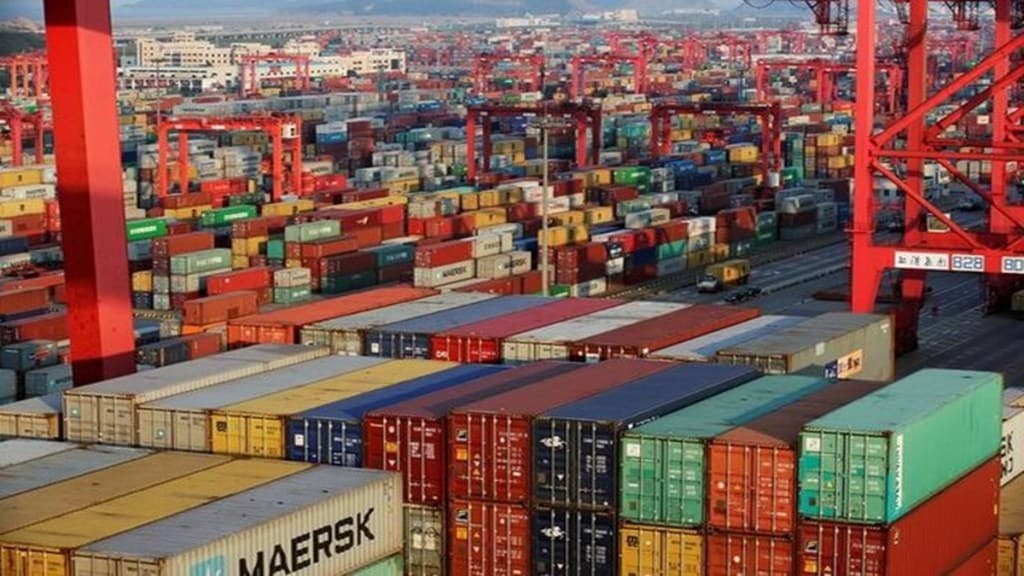By Nigel Green
Donald Trump’s latest wave of tariffs is more than just a trade policy—it’s an economic weapon.
The aggressive levies—25% on Canada and Mexico, 10% on China, and threats against the European Union—mark a turning point.
This isn’t about fair trade; it’s a full-scale economic battle with global consequences.
China isn’t standing idly by. Beijing has issued a stark warning that it’s ready for a prolonged trade war and will retaliate strategically, targeting key US industries like agriculture and technology.
The European Union is considering its countermeasures, while Canada and Mexico are preparing their own responses. The global trading system, built over decades, is now under siege.
Markets are already feeling the tremors. Volatility is rising, businesses are adjusting their forecasts, and investors are growing uneasy about what comes next.
The belief that tariffs will strengthen the US economy is proving to be a costly illusion. These trade barriers increase costs for companies, slow consumer spending, and weaken economic resilience. Instead of displaying strength, Washington is imposing an economic burden that will, I suspect, ultimately backfire.
The Trump administration is promoting tariffs as a tool to restore American manufacturing and economic power. But the reality is likely to tell a different story. Higher import costs mean businesses will either absorb financial losses—cutting jobs and expansion plans—or pass the costs to consumers, fueling inflation and eroding purchasing power. Either way, the outcome is the same: slower economic growth wrapped in political posturing.
This is not sound economic strategy; it’s high-risk brinkmanship.
With additional tariffs on other countries scheduled on April 2, businesses and investors are left in limbo, facing uncertainty that could derail growth. Retaliation from major economies is inevitable, bringing with it capital flight, disrupted supply chains, and instability in financial markets.
History proves that trade wars have no winners. Tariffs don’t create economic strength; they weaken it. They don’t protect jobs; they threaten them.
Previous global trade conflicts have left a trail of economic damage, and this one will be no different. The fallout will be felt by businesses struggling with higher costs, households dealing with rising prices, and markets adapting to an unpredictable landscape.
This is an engineered crisis, not an inevitable one. The world is now heading toward a prolonged period of economic friction that could surpass previous downturns. Unlike natural market cycles, this instability is being deliberately created through aggressive trade policies. The longer it continues, the deeper the economic wounds will be—both in financial losses and in the erosion of global trade relationships that took generations to establish.
A smarter approach would be to strengthen trade ties, not sever them. The most successful economies of the future will be those that embrace open markets, innovation, and global cooperation—not those that retreat behind tariff walls. Protectionism has never been a sustainable path to economic strength, and this latest attempt will prove no different.
Also Read: Indian investors face setbacks as their top US stocks underperform in 2025
The world is on edge, and the economic storm is gathering. Unless there’s a fundamental shift in approach, the fallout from this trade war will be potentially devastating, widespread, and lasting.
(Author is deVere Group CEO and Founder)
Disclaimer: Views, recommendations, and opinions expressed are personal and do not reflect the official position or policy of FinancialExpress.com. Readers are advised to consult qualified financial advisors before making any investment decision. Reproducing this content without permission is prohibited.

